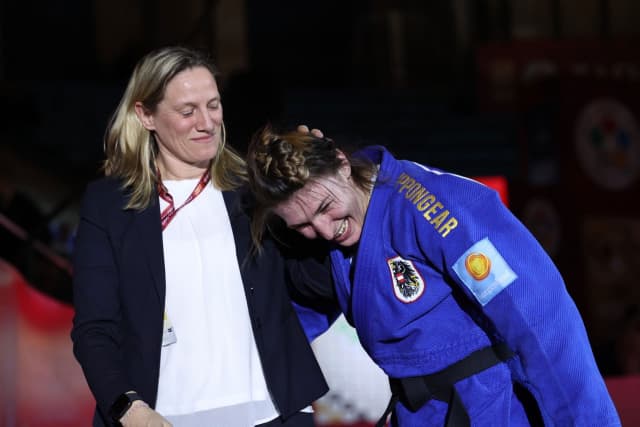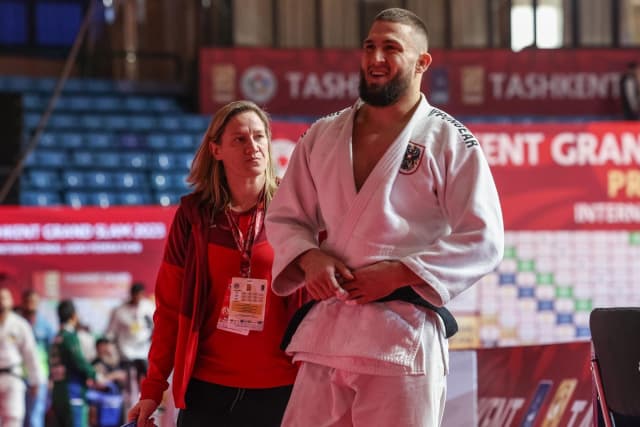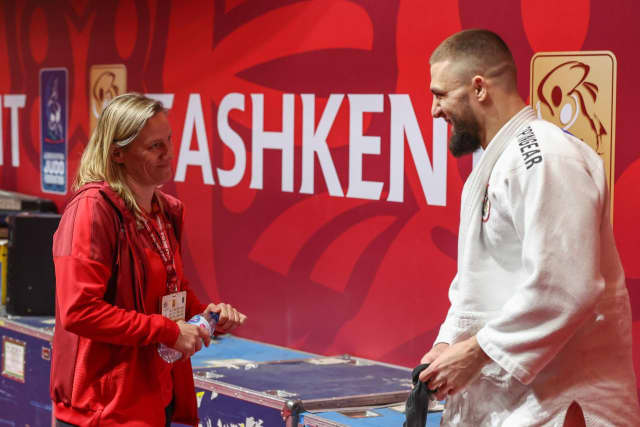"The level of women's judo has evolved enormously over the recent period and I can truly say that today equality prevails between men and women. All over the world, in each country, there is a development of female judo. If we look back, not so long ago, there were no female judoka in Uzbekistan where we are for the Tashkent Grand Slam for example, whereas today there is a very strong group of female athletes.
I believe it is important that in all national coaching teams, there is at least one female coach. It's necessary. I see several reasons for this but, I believe that essentially, there is a different approach on the part of the men and women who manage national teams and it is this complementarity which is interesting. In Austria, I work with Robert Krawczyk and we are a very good team.
The difference I am talking about is linked to the relational dimension that we establish with the judoka. I believe that women have a greater sensitivity to details and it is often the details that make the difference, especially when competing at the highest level. Male coaches bring strength, we bring a touch of sensitivity, even if I am also a strong woman.
In Austria, our national team is rather tight and all our athletes train together, men and women, even if we also have specific technical sessions for each. We also have an adapted approach depending on who we have in front of us. With male athletes, we can be more direct, sometimes a little rougher. With women, we have to be more subtle, even if at the end of the day, we have the same objectives.
I started at club level but now I take care of the Austrian national team. What I always remember is the passion and the love of the profession. I love what I do and even if sometimes we have approaches that adapt to everyone, we all have the same passion for what we do."
The least we can say is that these small differences are everything. On the second day of the Tashkent Grand Slam 2023, Yvonne and Amjad took turns sitting in the coach's chair and at the end of the second day, Austria collected two medals: gold for Michaela Polleres at -70kg and silver for Shamil Borchashvili at -81kg and this is also gender equality, concretely.



